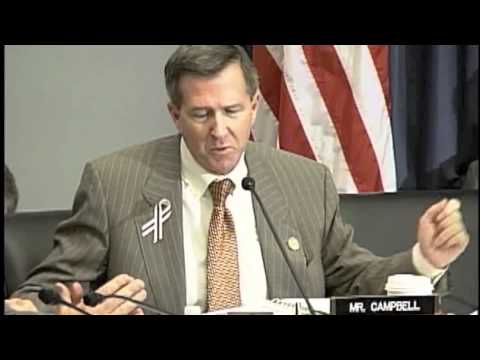At a House Budget Committee hearing earlier today, Rep. John Campbell of California detailed the impact of the new health care law with Centers for Medicare and Medicaid Services Chief Actuary Richard Foster . Campbell and Foster exposed the folly of claims that the law's Medicare provisions could both reduce the deficit and extend the solvency of Medicare, as many of the law's supporters, including the President, have claimed. Foster — Medicare's independent chief actuary — said this isn't possible unless you double-count the savings:
CAMPBELL: "Is it legitimate to say… that you can add a dozen years to the solvency of Medicare or that you can reduce the deficit, but it is not correct to say both simultaneously?"
FOSTER: "Both will happen as a result of the same one set of savings, under Medicare. But it takes two sets of money to make it happen. It happens directly for the budget deficit, from the Medicare savings, and then when we need the money to extend the Hospital Insurance Trust Fund, we have a promissory note — it's an IOU, not a worthless IOU, but it is an IOU — and Treasury has to pay that money back. But they have to get it from somewhere. That's the missing link."
For more on the fiscal consequences of the health care law:






